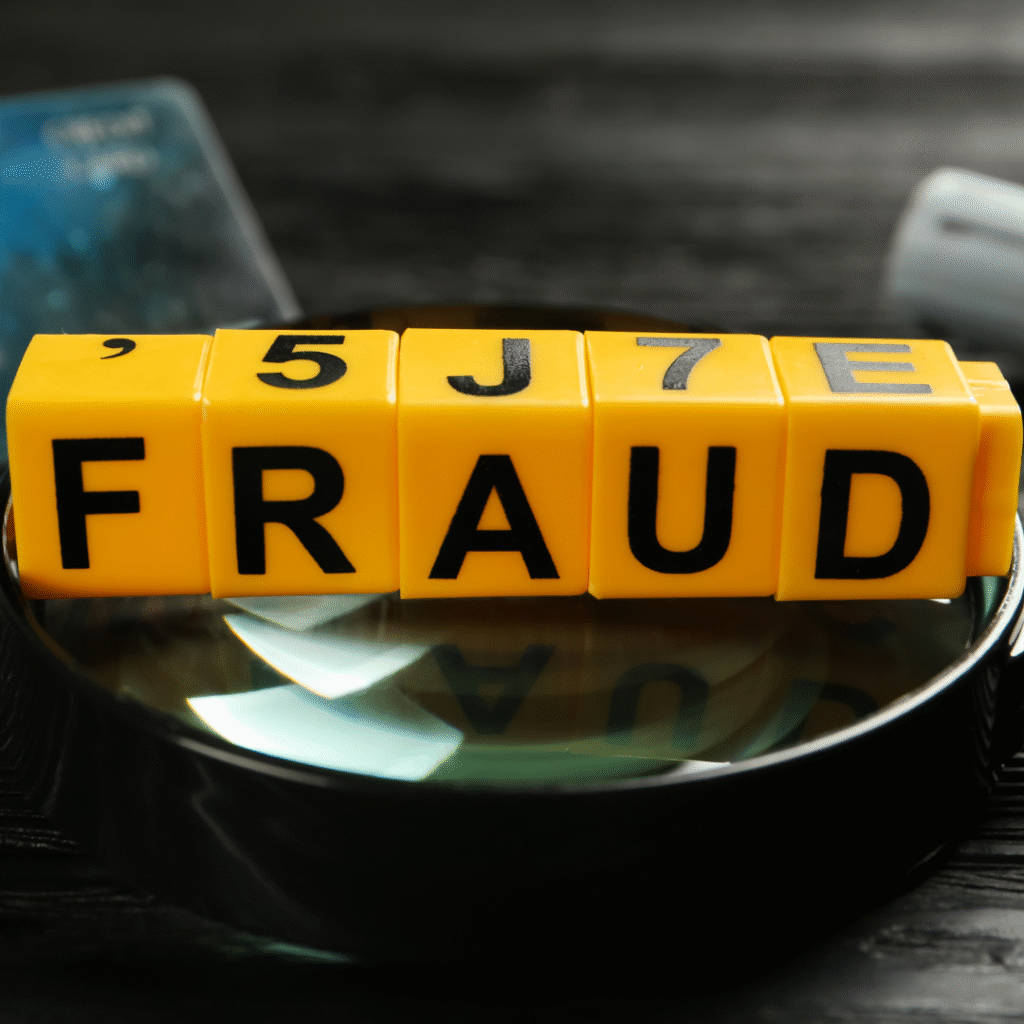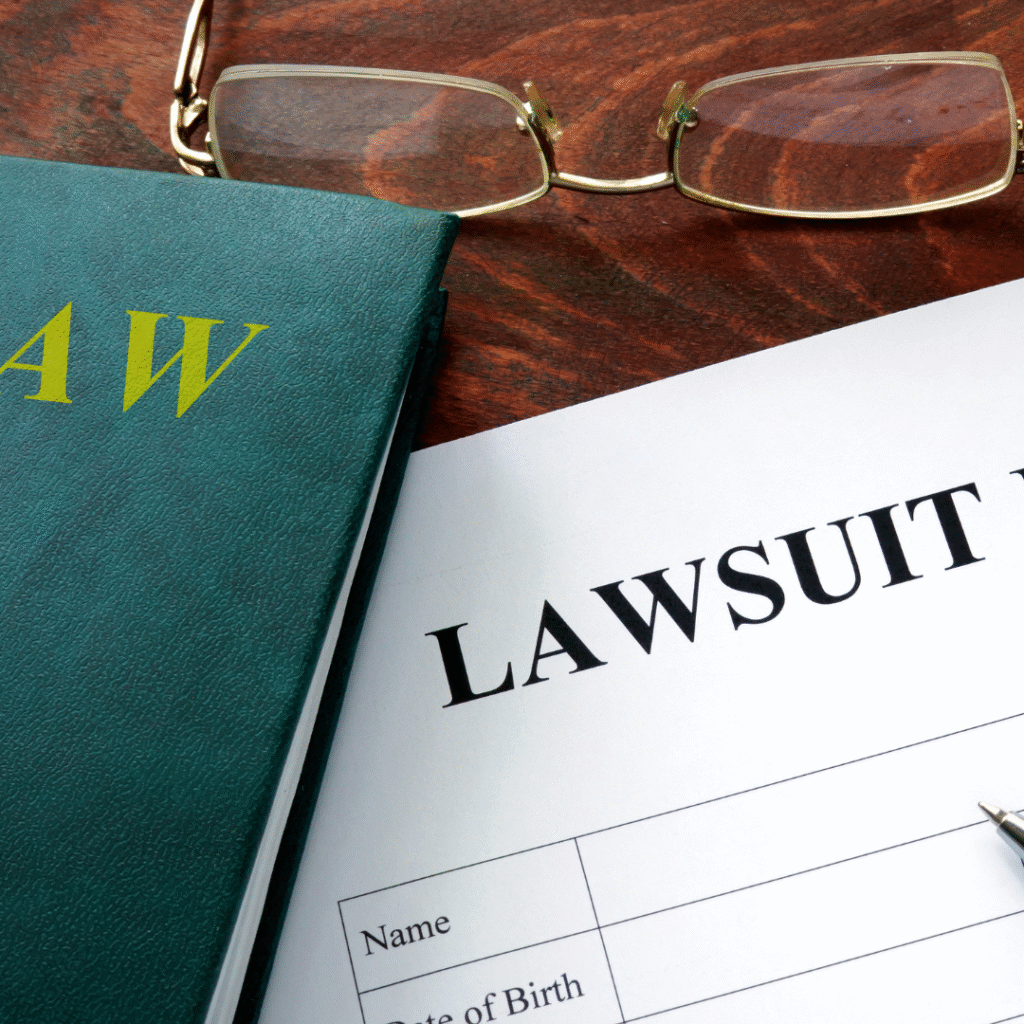Industrial Cyber Insurance 2025: Premiums Rise, Coverage Shrinks

October 6, 2025 | JacobiJournal.com — The industrial cyber insurance market is tightening, leaving manufacturers and critical infrastructure operators facing rising premiums and widening coverage gaps. As ransomware and other digital threats escalate, insurers are recalibrating policies to limit exposure, putting industrial firms under growing financial and operational strain. Escalating Premiums Strain Industrial Firms Across the industrial sector, cyber insurance premiums have surged by double digits over the past year. Carriers cite mounting ransomware claims, supply-chain vulnerabilities, and nation-state cyber activity as key drivers. For businesses with high-value digital assets, coverage is increasingly difficult to secure without costly deductibles and restrictive exclusions. Coverage Gaps and Exclusions Emerge Even companies willing to absorb higher premiums are finding narrower protections. Exclusions for operational technology (OT) disruptions, third-party vendor breaches, and systemic ransomware attacks are becoming common. Risk managers warn that these gaps could leave manufacturers exposed during precisely the kind of catastrophic events that policies were designed to cover. Market Pressures and Insurer Behavior The industrial cyber insurance squeeze reflects a broader shift in insurer behavior. Providers are pulling back on high-risk industries while demanding stronger risk controls, including multi-factor authentication, network segmentation, and 24/7 monitoring. Firms unable to meet these requirements may see reduced coverage or outright denial of renewal. Path Forward: Mitigation and Partnerships Industry experts recommend a dual approach: investing in cyber resilience while engaging with insurers early to negotiate tailored coverage. Partnerships with managed security providers and adoption of real-time threat intelligence tools are increasingly essential to both reduce risk and satisfy insurers’ evolving demands. For more details on cyber insurance market trends, see Deloitte’s 2025 cybersecurity and insurance outlook: Deloitte Cyber Insurance Report. FAQs: Industrial Cyber Insurance What is industrial cyber insurance? Industrial cyber insurance provides coverage for digital risks such as ransomware, data breaches, and operational technology disruptions in the industrial sector. Why are industrial cyber insurance premiums rising? Premiums are increasing due to growing ransomware attacks, complex supply chain risks, and higher claim payouts across the industry. What coverage gaps are emerging in industrial cyber policies? Common exclusions now include vendor-related breaches, OT disruptions, and systemic cyber events that impact multiple insureds. How can companies secure better industrial cyber insurance terms? Firms can strengthen cyber defenses, implement compliance frameworks, and negotiate policies in partnership with brokers specializing in industrial risks. Stay informed and subscribe to JacobiJournal.com for expert updates on fraud, risk, and insurance litigation shaping today’s markets. 🔎 Read More from JacobiJournal.com:
Tom Girardi Ordered to Stay in Prison While Wire Fraud Appeal Proceeds

September 25, 2025 | JacobiJournal.com — Disgraced California attorney Tom Girardi will remain behind bars as his legal team pursues an appeal of his wire fraud conviction. A federal judge ruled that Girardi failed to show the “exceptional circumstances” required for release pending appeal, citing both the seriousness of the crime and the risk of flight. The court’s decision underscores the high threshold defendants must meet to secure release after a conviction. Judges typically look for compelling health concerns, significant new evidence, or legal errors that strongly suggest a conviction might be overturned—none of which Girardi successfully demonstrated. Background on the High-Profile Conviction Once celebrated for winning massive settlements in consumer lawsuits, Tom Girardi was convicted earlier this year of stealing millions in client settlement funds. Prosecutors demonstrated that he used interstate communications and banking systems to funnel those funds into personal expenses, meeting the legal threshold for federal wire fraud. His once-glittering reputation, enhanced by a high-profile marriage and appearances on reality television, crumbled as whistleblowers and investigative journalists exposed the scale of the fraud. The revelations prompted multiple civil suits, bankruptcy proceedings, and an eventual criminal indictment that brought decades of alleged misconduct into the spotlight. Court Cites Flight Risk and Financial Danger In the September 22 order, the judge highlighted that Girardi’s past deception and access to hidden resources made him a potential flight risk. The court also emphasized the need to protect victims and ensure restitution while the appeal moves forward. Federal prosecutors argued that Tom Girardi still has the connections and financial know-how to evade authorities or hide remaining assets. Keeping him in custody, they said, prevents additional harm to the victims and preserves the integrity of ongoing restitution efforts. Appeal Faces Steep Challenges Girardi’s attorneys say they will continue to challenge the conviction, but legal experts note that overturning a federal jury verdict is notoriously difficult. The appellate process is expected to stretch well into 2026, keeping Girardi in a federal Bureau of Prisons facility during that time. Appellate courts typically focus only on whether legal errors affected the trial’s outcome, rather than re-examining facts. Without clear evidence of procedural mistakes or constitutional violations, analysts believe Girardi’s chances of success remain slim. For an authoritative overview of wire fraud laws and penalties, visit the U.S. Department of Justice’s wire fraud resource page. FAQs: About the Tom Girardi Prison Appeal Why did the judge refuse to release Tom Girardi during the appeal? The court ruled that Girardi could not show exceptional circumstances and posed a flight risk, making release inappropriate. What crimes was Tom Girardi convicted of? He was found guilty of federal wire fraud for misappropriating millions of dollars from his own clients’ settlement funds. How long could the appeal process take? Federal appeals can take many months or even years, depending on the complexity of the case and the appellate court’s schedule. What happens to restitution for Girardi’s victims? With Girardi in custody, restitution and civil claims can continue without interruption, giving victims a better chance of recovering funds. Subscribe now to JacobiJournal.com for timely updates on high-profile legal cases. Get expert analysis, courtroom developments, and exclusive insights delivered directly to your inbox. 🔎 Read More from JacobiJournal.com:
Second Circuit Orders Resentencing in $600M Medical Billing Fraud Case

September 12, 2025 | JacobiJournal.com — A federal appeals court has affirmed the conviction of a Long Island medical biller who orchestrated a $600 million medical billing fraud scheme but sent the case back to the trial court for resentencing. The ruling underscores the judiciary’s continued focus on accountability in one of the largest medical billing fraud cases ever prosecuted. Conviction Upheld, But Sentencing Reconsidered The Second Circuit panel ruled that the evidence of fraud was overwhelming, leaving no question about the defendant’s guilt. However, the court determined that errors in the original sentencing required the case to be remanded for further review. The decision leaves the conviction intact while opening the door for a new assessment of the punishment. $600 Million Fraud Scheme Detailed According to federal prosecutors, the biller submitted fraudulent insurance claims totaling hundreds of millions of dollars and went so far as to impersonate professional athletes, including an NBA player and NFL figures, to further the scheme. The elaborate fraud exploited weaknesses in the medical billing system, resulting in one of the largest recoveries ever pursued in a single case. Broader Implications for Health Care Fraud Enforcement Legal analysts say the ruling highlights the importance of strong sentencing procedures in health care fraud cases. It also reinforces the government’s aggressive stance against schemes that threaten the stability of insurance systems and increase costs for policyholders nationwide. With medical billing fraud continuing to rise, this case may set a standard for future prosecutions. For official documentation and case details, readers can review filings at the U.S. Court of Appeals for the Second Circuit. FAQs: $600M Medical Billing Fraud Case What was the fraud about? The defendant submitted fraudulent insurance claims worth approximately $600 million, using false identities and impersonations to support the scheme. What did the Second Circuit decide? The appeals court affirmed the conviction but remanded the case for resentencing due to procedural errors in the original judgment. Why is resentencing significant? It ensures sentencing procedures meet federal standards, giving the defendant a fair hearing while maintaining accountability for large-scale fraud. How does this affect future health care fraud cases? The ruling reinforces both the seriousness of medical billing fraud and the need for careful sentencing, likely influencing how future fraud prosecutions are handled. Stay informed on major insurance fraud and health care litigation by subscribing to JacobiJournal.com. 🔎 Read More from JacobiJournal.com:
Federal Court Dismisses Hurricane Maria Fraud Suit Against Insurance Adjuster

September 10, 2025 | JacobiJournal.com – A fraud suit filed by an insurer has been dismissed by a Puerto Rico federal judge, who ruled against allegations that a public adjuster inflated damage calculations related to Hurricane Maria. The case, which alleged insurance fraud in the aftermath of the 2017 storm, was thrown out after the court determined the claims were legally insufficient to proceed. The outcome of the fraud suit highlights the challenges insurers face when trying to prove exaggerated or false claims in court. Without clear evidence of intent, such fraud suits often fail to advance, signaling that judges will require a higher burden of proof in disaster-related insurance disputes. Court Rejects Insurer’s Allegations The insurer had argued that the public adjuster exaggerated the scale of storm-related damages suffered by a Puerto Rican municipality, seeking higher payouts than warranted. However, the federal court concluded that the evidence presented did not meet the threshold to prove fraudulent intent. The dismissal ends the litigation, at least for now, though appeals remain possible. Hurricane Maria’s Long Legal Aftermath Hurricane Maria caused catastrophic losses across Puerto Rico, leading to years of disputes between policyholders, municipalities, and insurers. Allegations of fraud, inflated claims, and delayed payouts have become a recurring theme in litigation tied to disaster recovery. This case highlights how courts are scrutinizing fraud claims while balancing the need to ensure fair compensation for storm victims. Broader Implications for Insurance Fraud Cases Legal analysts say the ruling underscores the difficulty insurers face in proving fraud against adjusters, particularly in the high-stakes context of natural disasters. With billions in claims tied to hurricanes and other catastrophic events, the decision could influence how insurers pursue similar cases in the future. For access to official case filings and federal court rulings, visit the U.S. District Court for the District of Puerto Rico. FAQs: Hurricane Maria Fraud Suit What was the lawsuit about? An insurer alleged that a public adjuster inflated damage estimates for a Puerto Rican town after Hurricane Maria, leading to excessive insurance claims. Why did the court dismiss the case? The judge ruled that the evidence did not sufficiently prove fraud or misrepresentation by the public adjuster. Does this ruling impact future insurance fraud suits? Yes. It highlights the challenges insurers face in proving fraud in disaster-related claims, potentially shaping strategies in future litigation. What does this mean for Hurricane Maria recovery claims? It reflects the ongoing complexity of resolving insurance disputes tied to the storm and shows that fraud claims require strong, verifiable evidence to succeed. Stay updated on insurance fraud litigation and public integrity cases by subscribing to JacobiJournal.com. 🔎 Read More from JacobiJournal.com:
Former Tehama County Correctional Officer Sues County Over False Fraud Accusations

September 4, 2025 | JacobiJournal.com — A former Tehama County correctional officer has filed a civil lawsuit against the county, alleging she was wrongfully accused of workers’ compensation fraud after sustaining severe on-the-job injuries. Yvette Bline, who joined the department in 2008 and worked at the Tehama County Jail since 2011, says her 2017 training injury left her with lasting medical complications. After years of treatment and nearly half a million dollars in benefits, Bline’s case took a dramatic turn when county investigators accused her of exaggerating her injuries. Surveillance and Arrest Sparked Controversy In 2023, investigators began monitoring Bline, producing surveillance videos that they claimed showed her engaging in activities inconsistent with her medical reports. Based on this footage, prosecutors charged Bline with workers’ compensation fraud, leading to her arrest and termination. Bline’s attorney argues the videos were misleading and that county officials, including District Attorney Matthew Rogers and Sheriff Dave Kain, engaged in misconduct by allegedly fabricating or misrepresenting evidence. Lawsuit Alleges Retaliation and Defamation According to the complaint, the county’s actions were designed to cut off her remaining benefits while tarnishing her reputation in the community. Bline’s lawyer further highlighted that a presiding judge publicly reprimanded the District Attorney’s office for mishandling aspects of the case. The lawsuit seeks reimbursement of medical expenses, compensation for lost wages, and punitive damages. It also emphasizes the emotional toll on Bline and her elderly parents, who have lived in Tehama County for decades. Broader Implications for Workers’ Compensation Cases This lawsuit underscores the tension between government efforts to curb workers’ compensation fraud and the rights of injured employees to receive fair treatment. If successful, Bline’s case could pressure counties across California to reexamine investigative practices, particularly regarding surveillance and prosecutorial discretion. For readers who want to see direct reporting on this developing case, watch the full video coverage here: Tehama County Correctional Officer Lawsuit Report. FAQs: About the Tehama County Correctional Officer Lawsuit What is Yvette Bline’s lawsuit about? Bline alleges Tehama County officials falsely accused her of workers’ compensation fraud by fabricating evidence, leading to her arrest and termination. How much in benefits had she already received? Reports show Bline received about $500,000 in workers’ compensation benefits before her arrest in 2023. Why did prosecutors pursue the case? Investigators claimed surveillance footage showed Bline performing activities inconsistent with her reported injuries, though her attorney disputes its accuracy. What could this lawsuit mean for other workers? If successful, the case could influence how California counties handle fraud investigations and improve protections for employees injured on duty. Stay informed on high-profile legal battles. Subscribe to JacobiJournal.com today for breaking legal and workers’ comp news. 🔎 Read More from JacobiJournal.com:
Girardi Co-Attorneys Lose Appeal on Elder Abuse, Fiduciary Duty Claims

September 3, 2025 | JacobiJournal.com — A California appellate court has rejected efforts by two former co-counsel of disgraced attorney Tom Girardi to revive lawsuits alleging financial elder abuse and aiding in a breach of fiduciary duty. The ruling underscores the legal fallout that continues to unfold in connection with Girardi’s collapsed law empire and ongoing misconduct investigations. Court Says Claims Cannot Be Revived The co-attorneys had argued that Girardi and others were responsible for mismanaging settlement funds, including those owed to elderly clients. They sought to bring claims of elder abuse and fiduciary breaches, but the appellate panel affirmed a trial court’s dismissal. Judges ruled that the plaintiffs failed to meet the legal thresholds required to proceed under California’s elder abuse statutes. Girardi Legacy of Legal and Financial Turmoil Once one of California’s most prominent trial lawyers, Girardi’s downfall has been marked by bankruptcy, federal indictments, and professional disgrace. Allegations that settlement funds were siphoned from vulnerable clients—including widows, orphans, and elderly victims—have fueled nationwide scrutiny. This case reflects how former partners and associates are also struggling to separate themselves from his tainted legacy. Legal Experts Weigh In Observers note that the ruling reinforces courts’ reluctance to expand elder abuse statutes to attorney disputes between former colleagues. Instead, fiduciary duty and malpractice claims are being confined to more traditional boundaries. The appellate court’s decision may set an important precedent in future claims tied to Girardi’s fallout. For a deeper look into the ongoing Girardi cases and related court actions, readers can review the California Courts of Appeal opinions available on the California Courts official website. FAQs: Girardi Co-Attorneys Appeal What was the case about? Two of Tom Girardi’s former co-counsel attempted to bring elder abuse and fiduciary duty claims, alleging financial harm tied to settlement mismanagement. Why did the court reject the claims? The appeals court upheld the dismissal, finding that the allegations did not meet California’s legal standards for elder abuse or aiding and abetting fiduciary breaches. How does this relate to Girardi’s other cases? This ruling is part of a larger web of civil suits and criminal cases linked to Girardi’s misconduct, which include bankruptcy proceedings and federal fraud charges. What precedent does this set? The case highlights limits on applying elder abuse statutes to attorney disputes, signaling that future claims will face high scrutiny. Stay informed on the latest in legal accountability and financial crime by subscribing to JacobiJournal.com. 🔎 Read More from JacobiJournal.com:
Pennsylvania Hospital Fraud Suits Blocked by $19M Deal, Court Rules

September 2, 2025 | JacobiJournal.com — Pennsylvania hospital fraud suits have been barred after a federal appeals court upheld a $19 million settlement that resolved long-running allegations of improper Medicare and Medicaid billing. The ruling closes one of the most closely watched healthcare fraud disputes in the state, where whistleblowers had accused the University of Pittsburgh Medical Center (UPMC) and affiliated physicians of manipulating billing practices to inflate reimbursements. At the heart of the Pennsylvania hospital fraud allegations were claims of unnecessary cancer treatments, double billing, and improper coding that prosecutors argued cost taxpayers millions. By affirming the settlement, the court not only finalized the financial recovery but also effectively shut down future lawsuits tied to the same conduct. Legal experts note that this decision sets an important precedent for how federal courts may treat overlapping whistleblower cases, narrowing the path for additional litigation once a global resolution has been reached. UPMC Accused of False Claims and Improper Billing A three-judge panel of the Third Circuit ruled that the agreement, reached between federal prosecutors and the University of Pittsburgh Medical Center (UPMC) along with certain physician groups, precludes further whistleblower claims tied to the same allegations. The court emphasized that the $19 million settlement was intended to bring closure to years of litigation surrounding improper Medicare and Medicaid billing practices. By ruling in favor of UPMC, the panel effectively confirmed that all overlapping claims related to the alleged misconduct were absorbed into the federal settlement. The panel’s decision reflects how Pennsylvania hospital fraud cases are increasingly resolved through comprehensive agreements rather than piecemeal litigation. Prosecutors argued that allowing additional whistleblower suits to proceed would create duplicative claims and undermine the finality of negotiated settlements. For UPMC, the outcome provides certainty after years of scrutiny, while for whistleblowers, it raises concerns that valid claims may be sidelined when folded into broader fraud resolutions. Whistleblowers’ Claims Swept Into Settlement The panel rejected arguments from relators who sought to continue separate lawsuits, holding that the settlement fully released the claims under the False Claims Act (FCA). “The $19 million deal covered the same alleged conduct, and duplicative litigation cannot proceed,” the opinion stated. The court reasoned that permitting additional lawsuits would not only risk conflicting judgments but also erode the purpose of negotiated fraud settlements, which are designed to bring finality and conserve judicial resources. For the whistleblowers, however, the ruling was a significant setback. Many had argued that their Pennsylvania hospital fraud claims involved distinct billing schemes or different time periods that deserved independent review. Yet the judges determined that the settlement’s broad scope encompassed all such allegations, leaving no room for separate recovery. This outcome illustrates the tension between incentivizing insiders to report fraud and the government’s preference for resolving healthcare disputes through comprehensive settlements. Tension Between Whistleblowers and Finality Federal prosecutors emphasized that the settlement was a significant recovery for taxpayers while allowing UPMC to avoid admitting liability. However, whistleblowers expressed concern that the ruling may discourage insiders from coming forward if their claims are swept into broad settlements without additional payouts. Prosecutors countered that the $19 million resolution delivered meaningful accountability for alleged misconduct while avoiding the uncertainty of protracted litigation. Critics argue that the decision highlights a recurring problem in Pennsylvania hospital fraud cases: whistleblowers often take substantial risks in exposing wrongdoing but may receive little or no recognition when their claims are folded into global settlements. Legal analysts note that this dynamic could weaken the incentive structure of the False Claims Act, which was designed to reward insiders who help uncover fraud. As a result, the case underscores the delicate balance courts must strike between achieving finality for institutions like UPMC and maintaining strong protections for whistleblowers who reveal systemic healthcare fraud. DOJ’s Focus on Healthcare Fraud The case highlights the growing tension in False Claims Act litigation between rewarding whistleblowers for exposing fraud and providing finality for institutions accused of misconduct. The ruling further signals that federal courts may take a narrow view of relators’ ability to press claims after a global settlement has been reached. This trend could directly affect how Pennsylvania hospital fraud cases are litigated in the future, with courts showing increased deference to comprehensive government settlements that cover broad categories of alleged misconduct. For context, the Department of Justice recovered more than $2.7 billion under the FCA in fiscal year 2024, with healthcare fraud accounting for the majority of cases. Officials have repeatedly stressed that enforcement against hospital systems remains a top priority, particularly where Medicare and Medicaid billing abuses are involved. The Pennsylvania hospital fraud suits against UPMC serve as a reminder that even large institutions remain under scrutiny, but final settlements may limit how far whistleblower claims can proceed once the government has secured a resolution. Read the DOJ’s latest False Claims Act statistics. FAQs: Pennsylvania Hospital Fraud Suits What were the Pennsylvania hospital fraud suits about? They involved allegations that UPMC and affiliated doctors submitted false Medicare and Medicaid claims for unnecessary cancer treatments and improper billing. Why did the appeals court block further lawsuits? The Third Circuit ruled that a $19 million settlement already resolved the claims, preventing duplicate litigation under the False Claims Act. What does this ruling mean for whistleblowers? It limits their ability to pursue separate claims if a global settlement has been reached, raising concerns about incentives to report fraud. How does this case fit into national healthcare fraud enforcement trends? It highlights the Department of Justice’s focus on large-scale settlements and its preference for finality in False Claims Act litigation, even at the expense of individual whistleblower actions tied to Pennsylvania hospital fraud. Subscribe to JacobiJournal.com for the latest updates on hospital fraud, healthcare fraud, False Claims Act rulings, and public integrity prosecutions. Stay ahead with expert reporting delivered directly to your inbox. 🔎 Read More from JacobiJournal.com:
Canton Man Pleads Guilty in $4M Medicare DME Fraud Scheme

August 25, 2025 | JacobiJournal.com – A Canton man has pleaded guilty in a $4 million Medicare durable medical equipment (DME) fraud scheme involving medically unnecessary orthotic braces and deceptive telemarketing practices. The scheme is part of a broader federal crackdown under the $14.6 billion nationwide Healthcare Fraud Takedown. Federal prosecutors announced that a Massachusetts-based DME provider admitted to defrauding Medicare by billing for orthotic braces that were either not medically necessary or never provided to patients. The defendant, whose identity was released in court filings, used aggressive telemarketing tactics to obtain patient information and physician orders, often without proper medical evaluation. Between 2018 and 2022, the defendant submitted millions in false claims to Medicare for back, knee, wrist, and shoulder braces, resulting in more than $4 million in fraudulent reimbursements. How the DME Fraud Scheme Worked According to the Department of Justice, the Canton man paid overseas and domestic telemarketing companies to cold-call Medicare beneficiaries, offering free or low-cost medical equipment. Once the patient information was obtained, the scheme funneled bogus or forged prescriptions through complicit medical professionals. These orders were then billed to Medicare, even though many patients never received or needed the braces. The DME company also allegedly disguised kickbacks as “marketing fees” and “consulting payments” to conceal the fraud. Federal Crackdown and Takedown Operation This case is part of the U.S. Department of Justice’s 2025 National Healthcare Fraud Enforcement Action, which has resulted in criminal charges against over 200 individuals nationwide. The coordinated action targeted schemes involving telemedicine, DME fraud, pharmacy billing, and opioid distribution — with total intended losses exceeding $14.6 billion. DOJ Statement on the Guilty Plea “Healthcare fraud drains taxpayer dollars, endangers patients, and undermines trust in our medical system,” said Acting U.S. Attorney Joshua S. Levy for the District of Massachusetts. “This guilty plea sends a strong message to those exploiting Medicare: we will hold you accountable.” Sentencing for the defendant is scheduled for later this year. He faces up to 10 years in federal prison, restitution, and forfeiture of assets acquired through fraud. Workers, Patients & Providers: Know Your Rights Medicare beneficiaries are urged to report suspicious calls, billing statements, or unsolicited medical devices. Healthcare providers should maintain strict compliance programs and verify telehealth claims carefully. For full details on this case and other healthcare fraud enforcement actions, visit the U.S. Department of Justice – District of Massachusetts official press release section. FAQs: Canton Man Pleads Guilty Who is the Canton man that pleaded guilty in the Medicare DME fraud case? The man who pleaded guilty was the owner of a DME company that used telemarketing and false medical claims to bill Medicare for unneeded orthotic devices. What was the total amount involved in the DME fraud scheme? The man pleaded guilty to defrauding Medicare of over $4 million through false claims for unnecessary medical equipment. How does this DME fraud case connect to the nationwide healthcare fraud takedown? This DME fraud case is part of the broader $14.6 billion healthcare fraud takedown, which involved hundreds of defendants across the United States. What penalties could he face after pleading guilty? He could face up to 10 years in federal prison, restitution payments, and forfeiture of any assets obtained through the $4 million fraud. Stay ahead of fraud cases, legal updates, and compliance alerts. Subscribe to JacobiJournal.com today for trusted reporting on white-collar crime, healthcare enforcement, and regulatory actions. 🔎 Read More from JacobiJournal.com:
DOJ Seeks $11M in Civil Forfeiture Over Miami DME Fraud Case

August 22, 2025 | JacobiJournal.com — Federal prosecutors are moving to seize nearly $11 million in assets tied to an alleged Miami DME fraud scheme that billed Medicare for over $33 million in medically unnecessary equipment. The U.S. Department of Justice (DOJ) says the case highlights a growing enforcement focus on healthcare fraud in the durable medical equipment sector. Miami DME Fraud Involving Unnecessary Billing The DOJ’s civil forfeiture complaint alleges that two Miami-based suppliers submitted false claims for orthotic braces and other devices that patients did not need or never received. Prosecutors say these actions violated federal healthcare fraud statutes and exploited taxpayer-funded programs. DOJ Traces Fraud Proceeds to $11 Million in Assets Investigators allege the targeted funds in this Miami DME fraud case were routed through multiple accounts and shell companies to obscure their origin. The DOJ is seeking to seize the money as proceeds of the fraudulent billing scheme. Federal Crackdown on Miami DME Fraud Schemes The DOJ has intensified enforcement actions against Miami DME fraud operations, citing the sector’s high risk for abuse. Officials say these cases protect Medicare’s financial integrity and deter future fraudulent billing practices. Source: U.S. Department of Justice. FAQs: About Miami DME Fraud What is Miami DME fraud? It refers to schemes in Miami involving durable medical equipment suppliers who bill Medicare for unnecessary or unprovided devices. How does civil forfeiture apply to Miami DME fraud cases? Civil forfeiture allows the government to seize assets tied to the fraud, even without a criminal conviction, if it can prove the connection in court. Why is Miami a focus for DME fraud enforcement? Miami is a high-priority area for fraud investigations due to the concentration of DME suppliers and history of large-scale Medicare fraud cases. Stay informed on major healthcare fraud cases and legal developments. Subscribe to JacobiJournal.com for exclusive updates, expert insights, and in-depth analysis. 🔎 Read More from JacobiJournal.com:
COVID Death Lawsuits May Require Special Master for Discovery

August 20, 2025 | JacobiJournal.com — A Pennsylvania state judge signaled she will likely appoint a special master to oversee discovery in two wrongful COVID death lawsuits against Brighton Rehabilitation and Wellness Center, after more than 133,000 documents surfaced despite earlier search limits. Judge Indicates Special Master Appointment Likely Judge Mary McGinley of the Allegheny County Court of Common Pleas told attorneys Tuesday that she does not believe the parties can resolve their disputes without outside assistance. “If, in a perfect world, I had confidence you could all work this out, I’d let you go, but that’s not the dynamic we’re working with here,” she said. The families of Elizabeth Wiles and Kevin Carroll, both Brighton employees who died after allegedly contracting COVID-19 at the facility, claim the nursing home mismanaged PPE distribution and quarantine protocols during the early pandemic. Discovery Dispute Over Massive Document Search The court previously limited discovery to 25 search terms across certain email accounts for a six-month period. Still, the searches returned more than 133,000 results, including: Defense counsel sought to narrow these results further, but plaintiffs argued that removing terms would undermine the search for relevant evidence of negligence in pandemic response. Background: Past Legal Troubles for Brighton Brighton Rehab and a related facility, Mount Lebanon Rehabilitation and Wellness Center, were previously prosecuted for falsifying staffing records and inflating patient care needs. In 2023, a jury acquitted individual defendants but convicted the corporations on charges of falsifying healthcare records. Next Steps in the Case Judge McGinley said that once appointed, the special master will collaborate with both sides and possibly use technology-assisted review to refine document searches. “The plan just needs to be fine-tuned,” she noted. For more on special masters and discovery processes in complex litigation, see Cornell Law School’s Legal Information Institute. FAQs: About COVID Death Lawsuits Discovery Disputes What is a special master in legal cases? A special master is a court-appointed expert who assists in managing complex tasks like discovery, evidence review, or settlement oversight. Why is discovery such a challenge in these lawsuits? The volume of potentially relevant documents—over 133,000—makes manual review time-consuming and costly, leading to disputes over how to narrow searches. What are the lawsuits against Brighton Rehab about? The suits allege Brighton mismanaged COVID-19 safety protocols, leading to the deaths of two employees, and failed to protect staff during the early pandemic. How do COVID death lawsuits differ from other wrongful death claims? COVID death lawsuits often involve questions about infection control, PPE distribution, and institutional negligence during the pandemic, making discovery especially complex. Can families of healthcare workers file COVID death lawsuits? Yes. Many COVID death cases involve healthcare workers, where families claim employers failed to provide adequate protections against exposure in high-risk settings. What evidence is most important in proving a COVID death case? The key evidence in COVID death lawsuits may include internal emails, PPE policies, staffing records, and medical documentation showing lapses in safety protocols. Stay updated and follow JacobiJournal.com for expert reporting on COVID death lawsuits, discovery disputes, and the legal strategies that impact patients, families, and institutions nationwide. Subscribe today for full coverage and analysis. 🔎 Read More from JacobiJournal.com: